#steph barron hall
Text

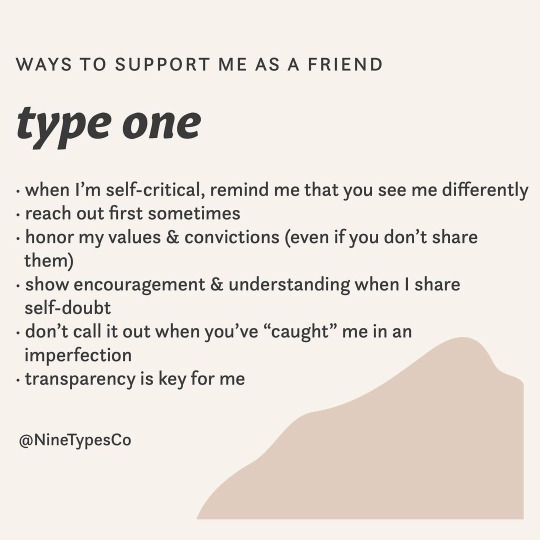
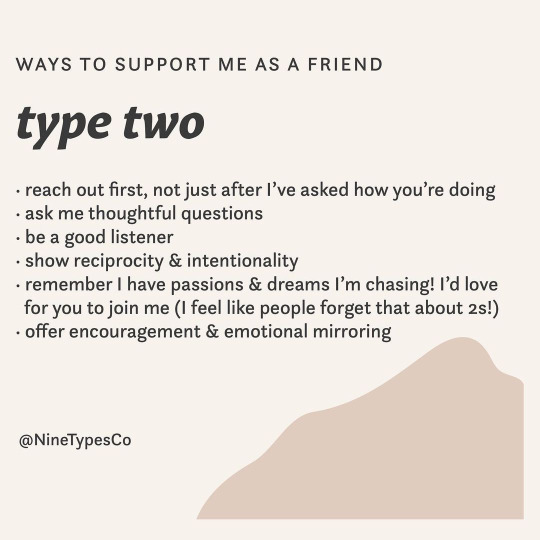
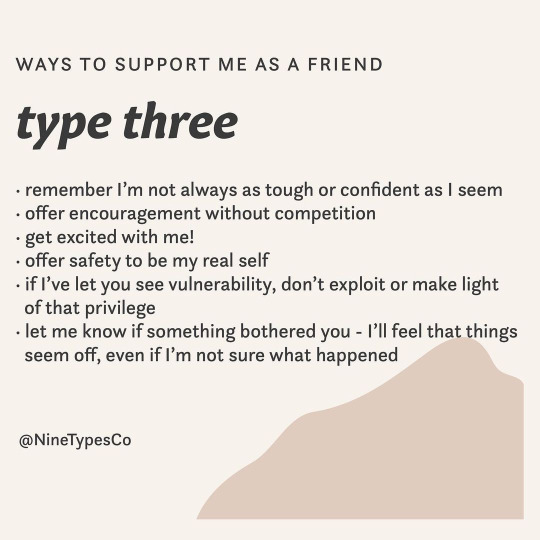
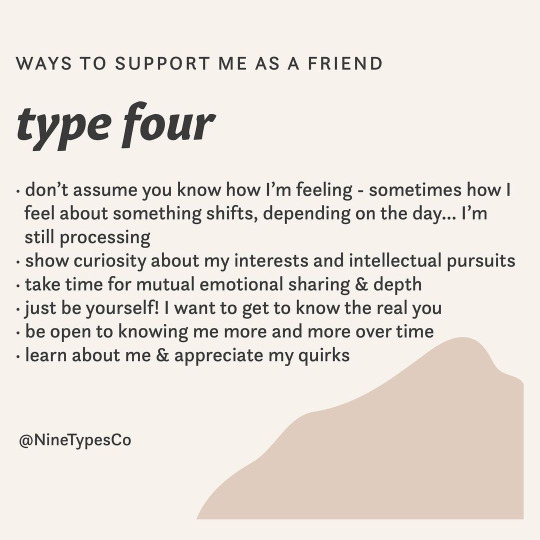

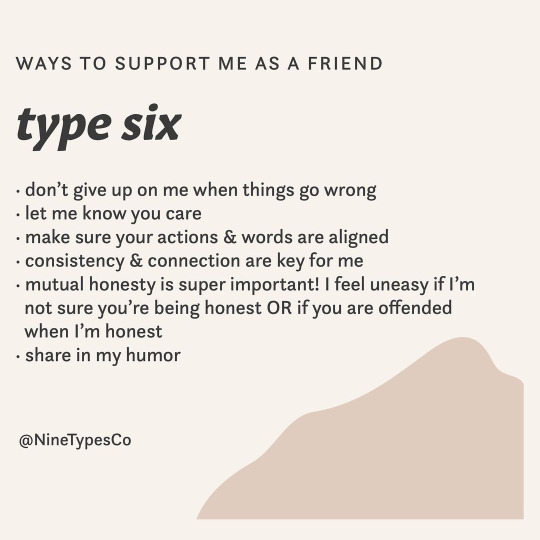
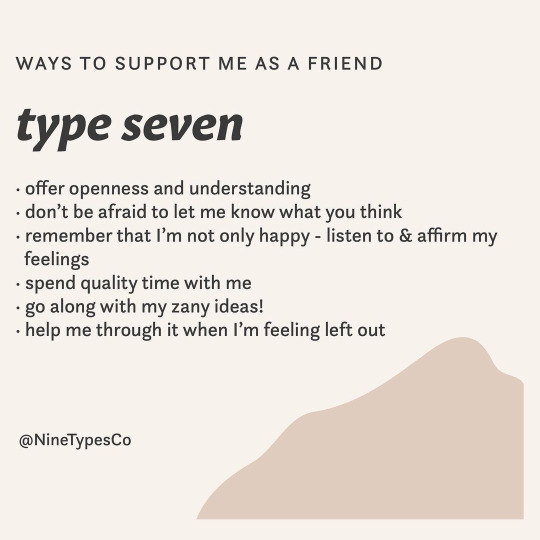

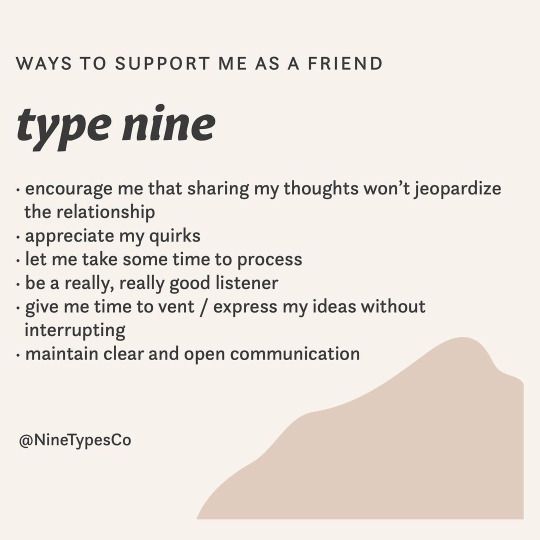
Ways to support me in a friendship, by Enneagram type. From NineTypesCo by Steph Barron Hall.
#steph barron hall#ninetypesco#enneagram#enneagram 1#enneagram 2#enneagram 3#enneagram 4#enneagram 5#enneagram 6#enneagram 7#enneagram 8#enneagram 9
12 notes
·
View notes
Photo
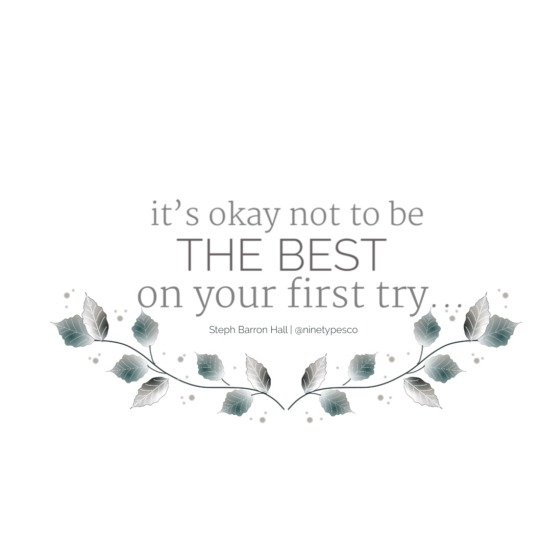
Steph Barron Hall | @ninetypesco
129 notes
·
View notes
Photo
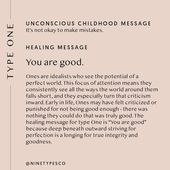
Enneagram | Steph Barron Hall (Enneagram | Nine Types Co.) • Instagram photos … https://ift.tt/2ROthQT
0 notes
Text
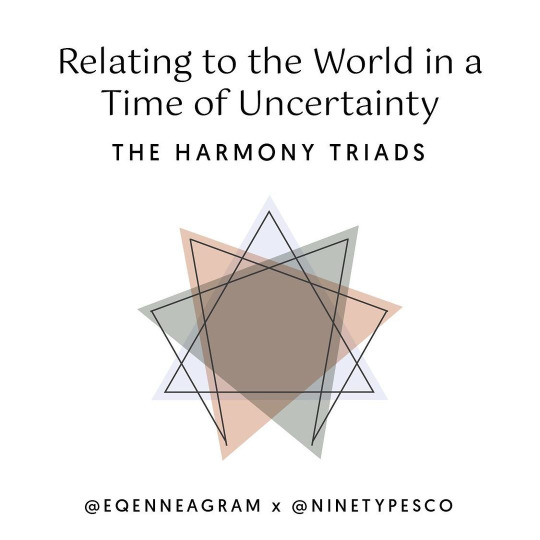
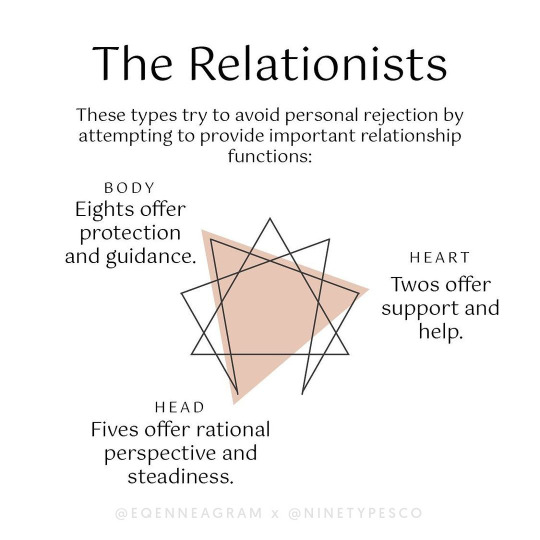
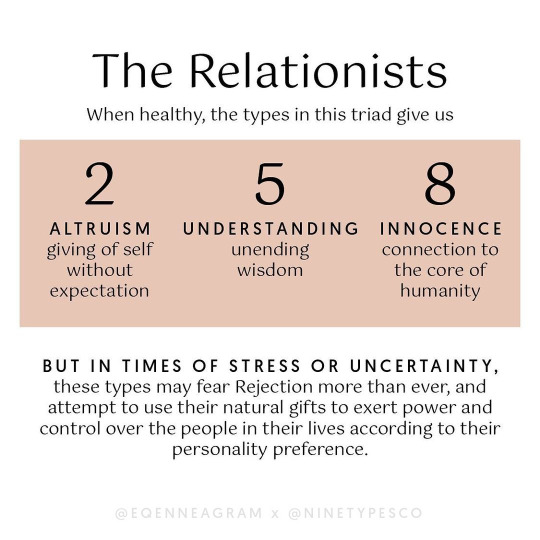
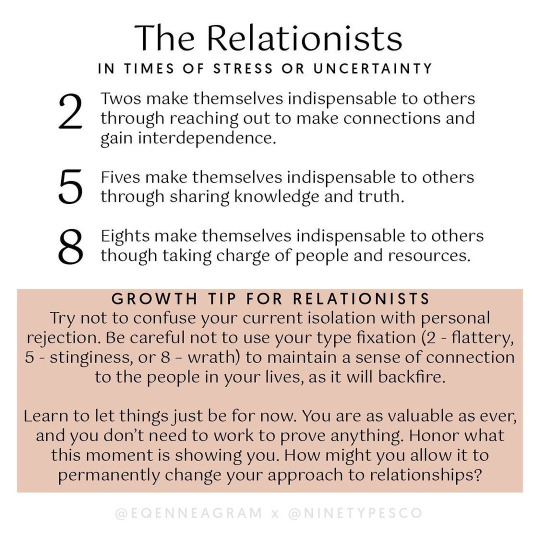
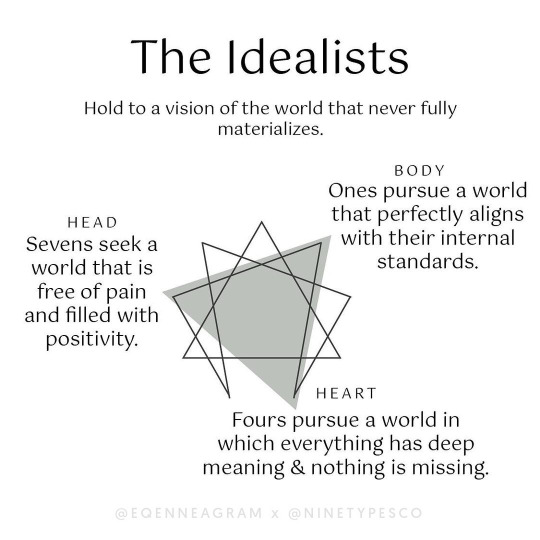
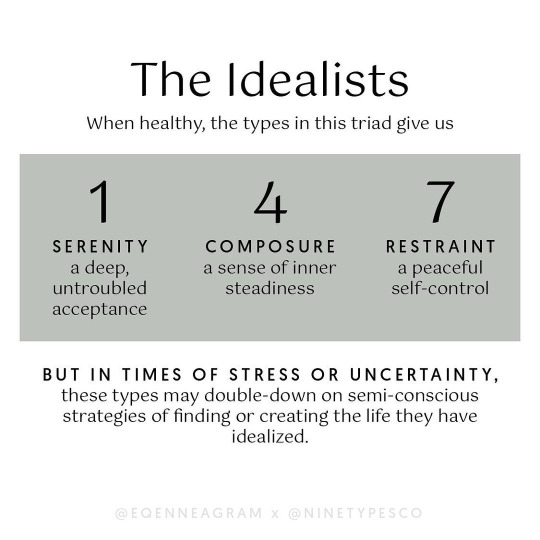
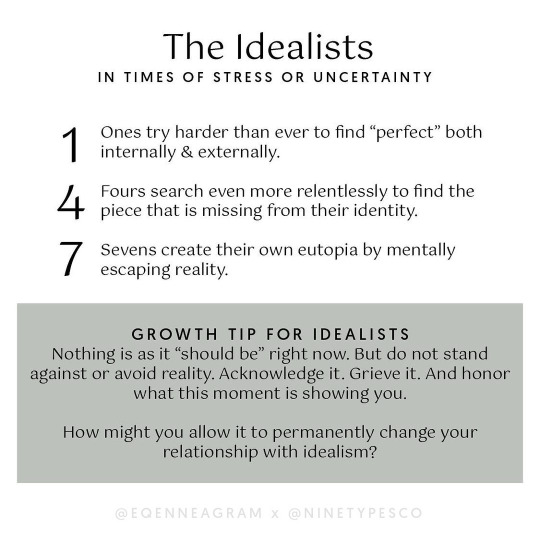
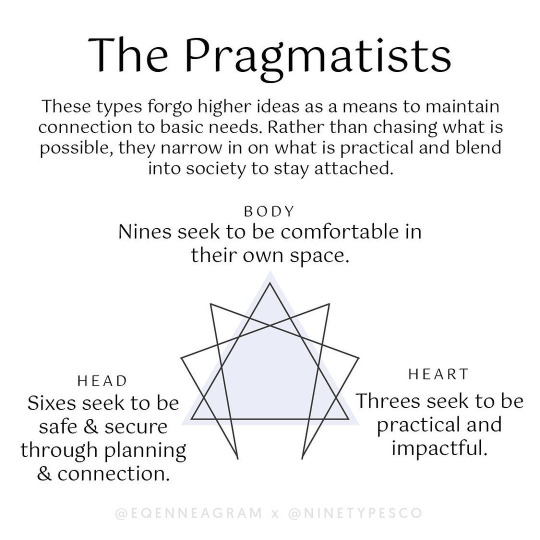
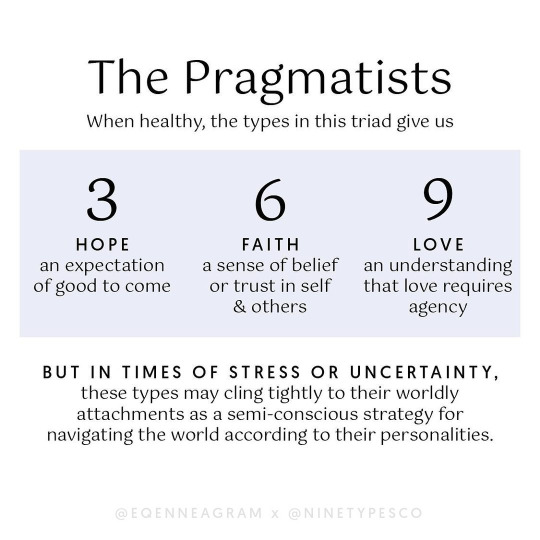
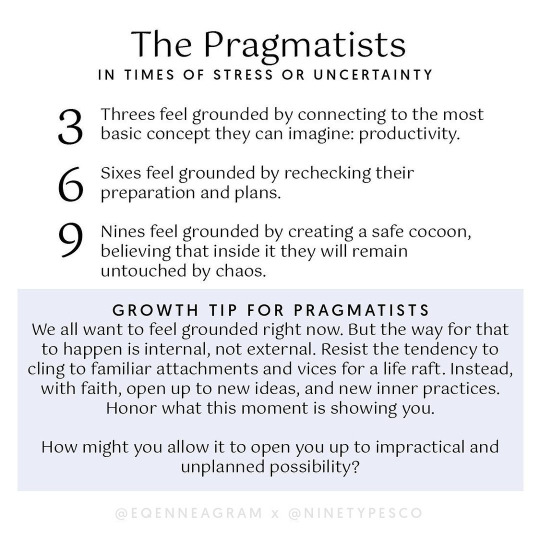
Relating to the World in a Time of Uncertainty: The Harmony Triads. From NineTypesCo by Steph Barron Hall.
This concept is called Harmony Triads. They are represented by equilateral triangles overlaid over the Enneagram symbol so that each triad includes one heart type, one head type, and one body type.
The Harmony Triads explain how each Enneagram type interacts with the world, and they can be especially helpful when navigating uncertainty. Any time we uncover a new way of looking at the Enneagram, we can find that there is something more to learn about ourselves and those around us.
#enneagram 1#enneagram 2#enneagram 3#enneagram 4#enneagram 5#enneagram 6#enneagram 7#enneagram 8#enneagram 9#harmony triads#the relationists#the idealists#the pragmatists#steph barron hall#ninetypesco#enneagram
10 notes
·
View notes
Text
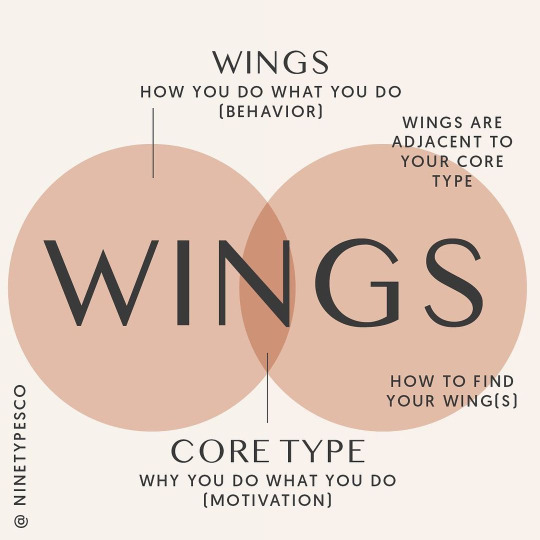

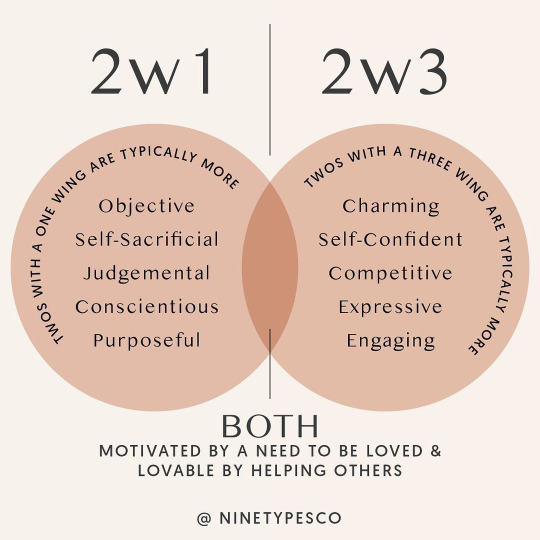
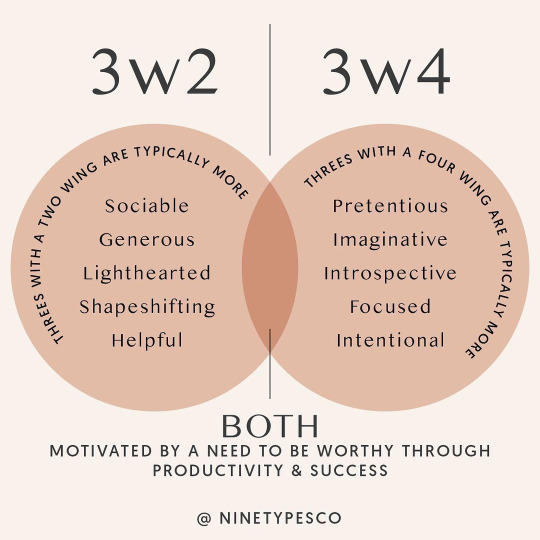
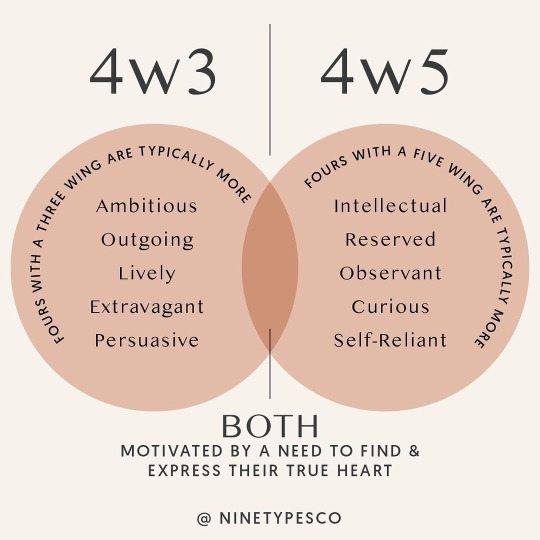
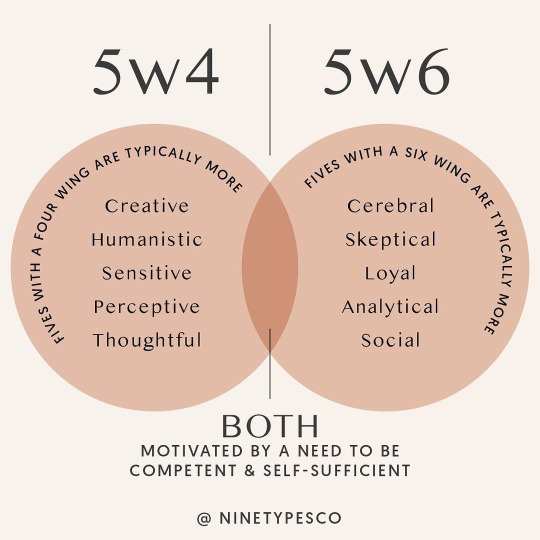
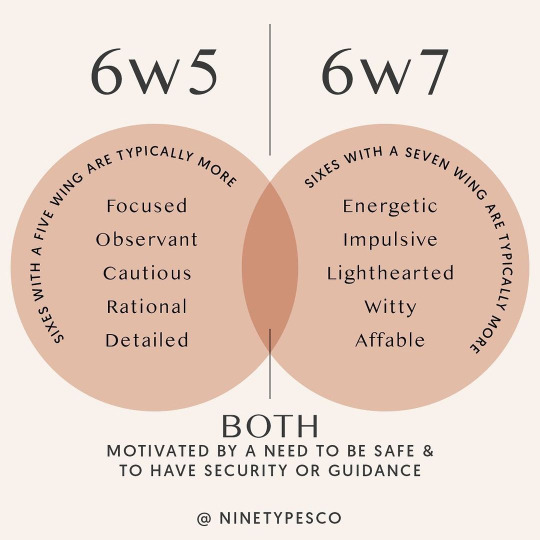
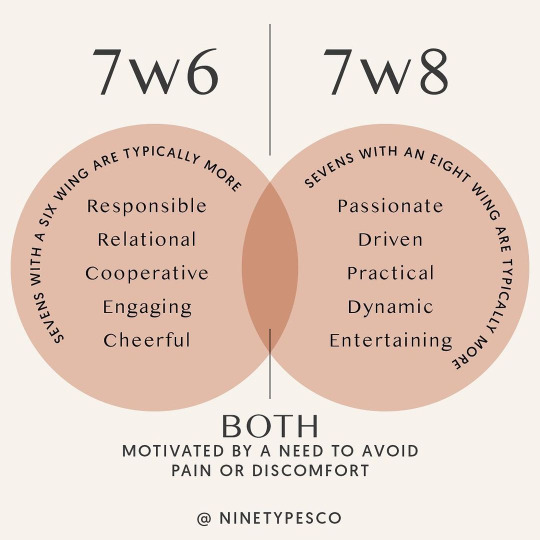
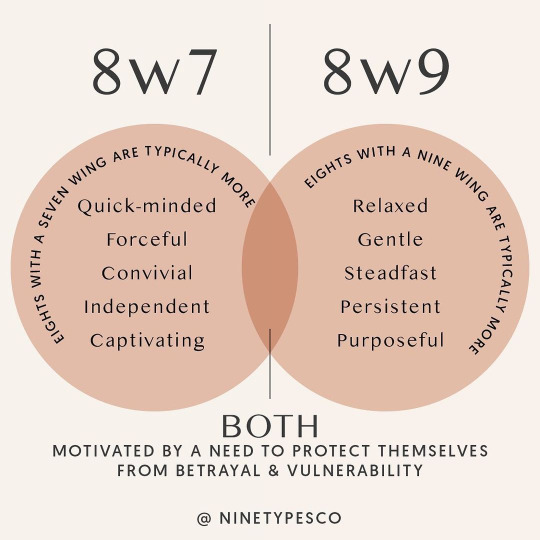
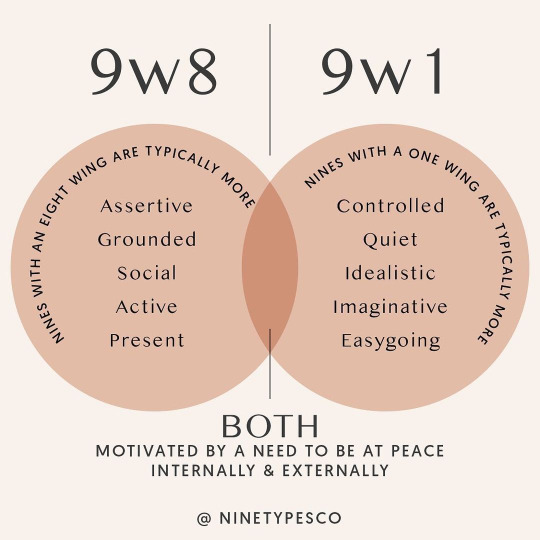
Wings. From NineTypesCo by Steph Barron Hall.
#steph barron hall#ninetypesco#enneagram#enneagram 1#enneagram 2#enneagram 3#enneagram 4#enneagram 5#enneagram 6#enneagram 7#enneagram 8#enneagram 9#wings
18 notes
·
View notes
Text
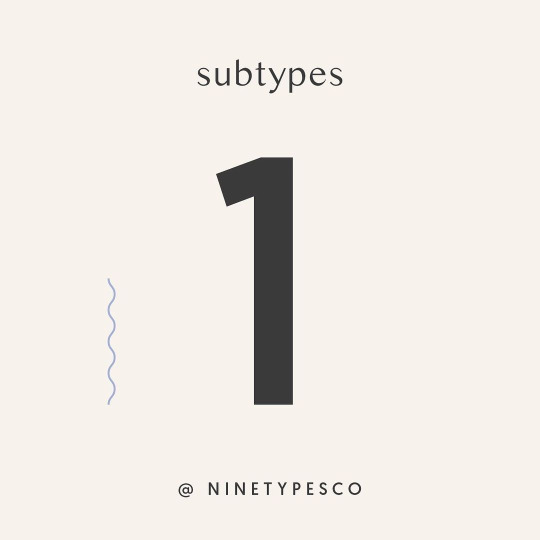


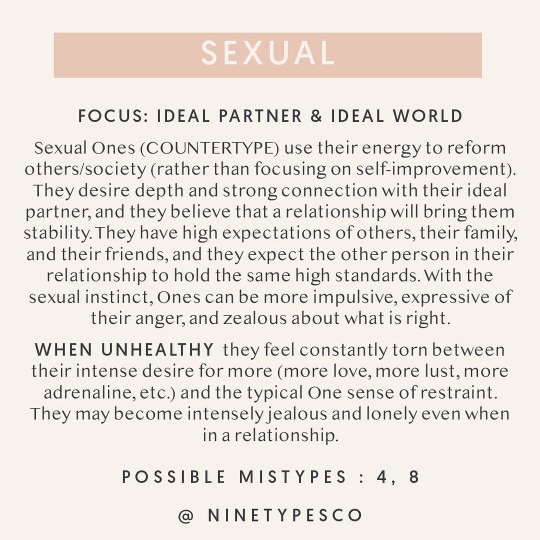
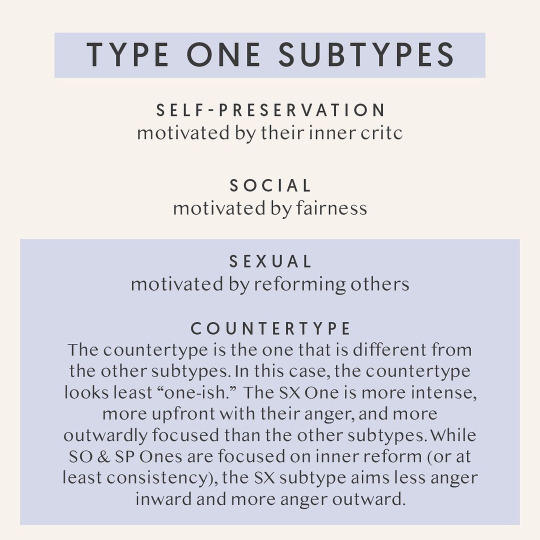
Subtypes: Type One. From NineTypesCo by Steph Barron Hall.
8 notes
·
View notes
Text

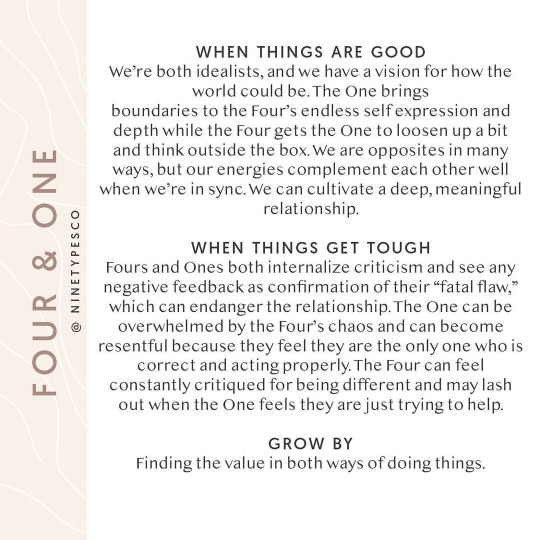

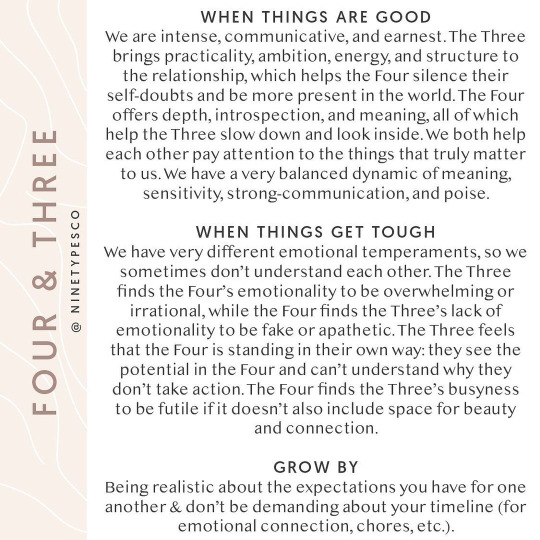

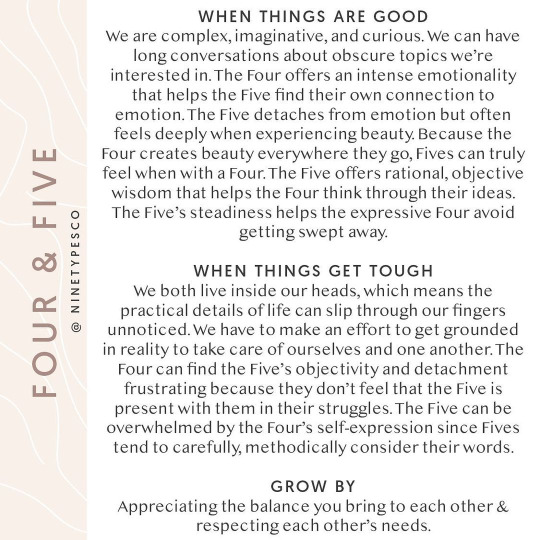

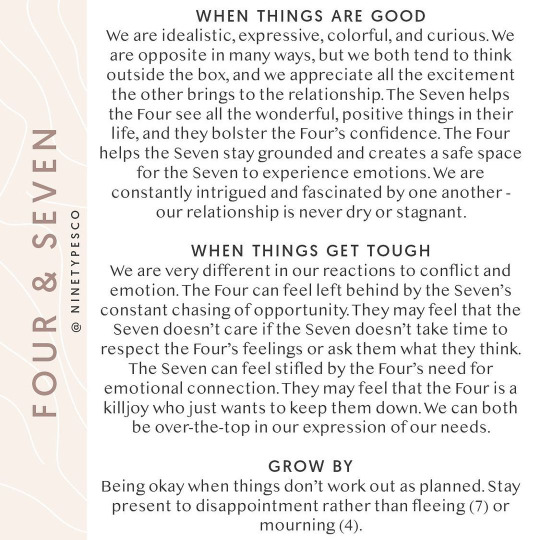

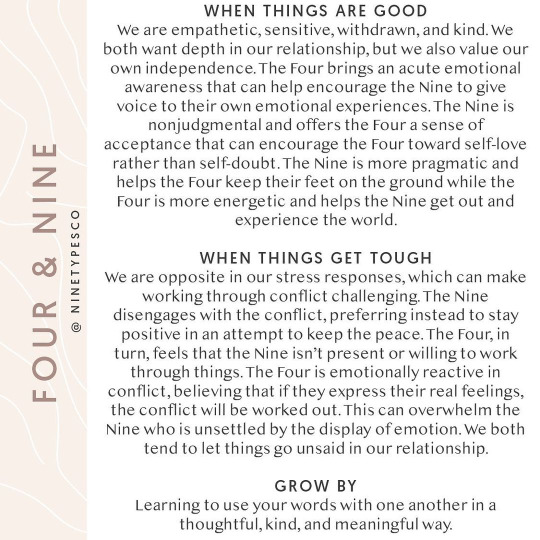
Relationships: Type Four. From NineTypesCo by Steph Barron Hall.
Deep | Introspective | Passionate | Affected | Novel⠀
⠀
In relationships, Fours value depth and empathy. Fours long to be mirrored and deeply understood by their partner, and they spend a great deal of time thinking about their own identity and who they are in the partnership. When less aware, Fours get so caught up in their own thoughts or daydreams that they are no longer attached to reality. In this state, they may ignore their partner. Fours are passionate and expressive of their moods and creativity, and they long to be seen for who they truly are.⠀
7 notes
·
View notes
Text
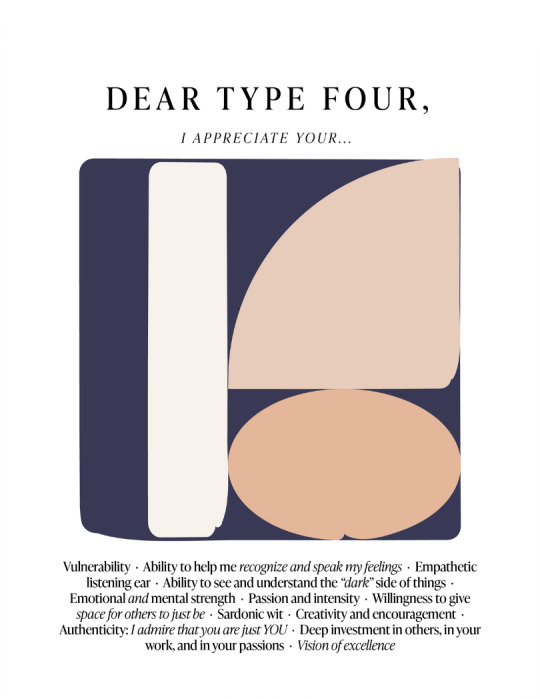

Type Four, by Steph Barron Hall.
Dear Type Four, I appreciate your…
Vulnerability • Passion and intensity • Ability to help me recognize and speak my feelings • Empathetic listening ear • Ability to see and understand the "dark" side of things • Emotional and mental strength • Willingness to give space for others to just be • Sardonic wit • Creativity and encouragement • Authenticity: I admire that you are just YOU • Deep investment in others, in your work, and in your passions • Vision of what could be
A few things I appreciate about myself
My emotional honesty • I can sit with others in their pain • My deep curiosity • My authenticity and openness • My natural sense of creativity—I'm always thinking outside the box • My ability to be vulnerable with others • I'm not afraid to look inward to see where I want to grow • I've stayed true to myself and my vision for my life • I invite others to be their authentic selves • I can navigate complex emotions • I'm always learning
Order a print from the artist's shop.
14 notes
·
View notes
Text
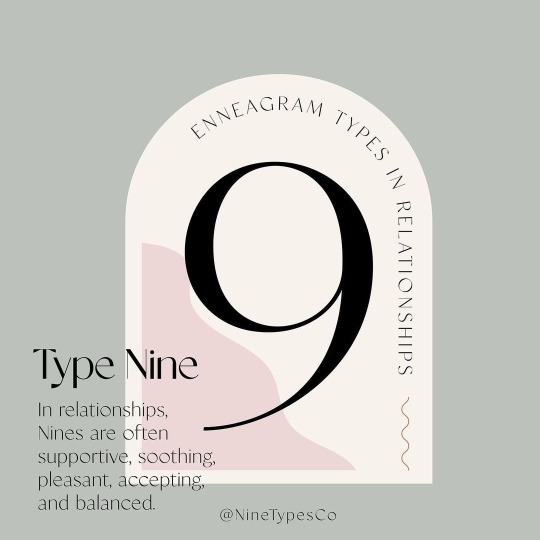
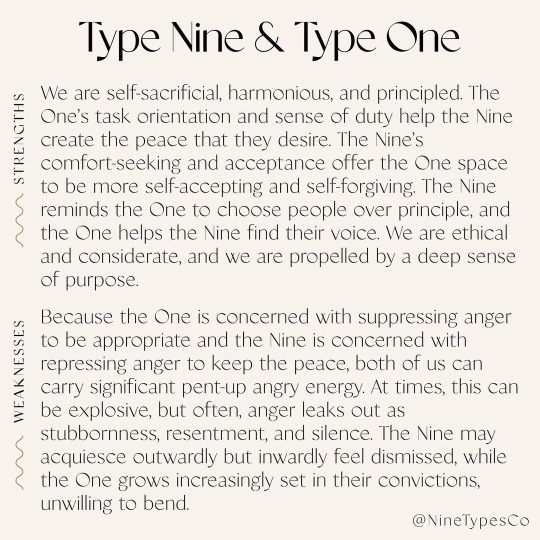
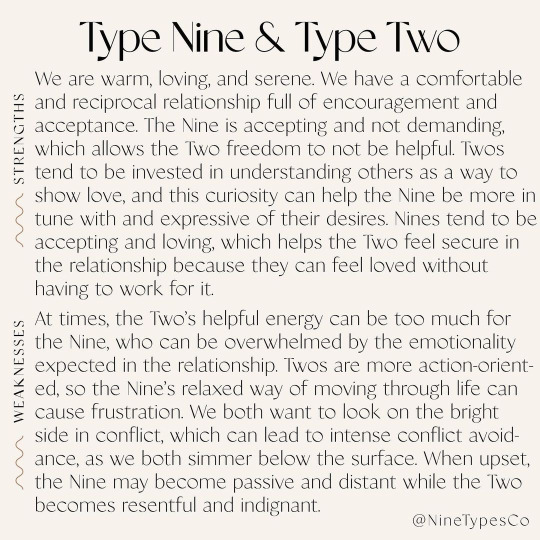
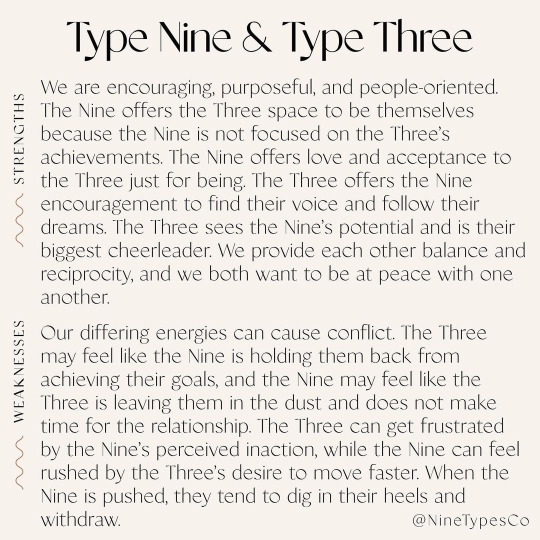



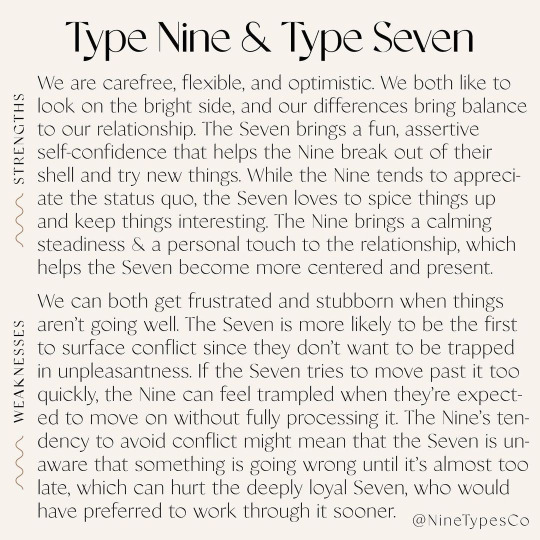

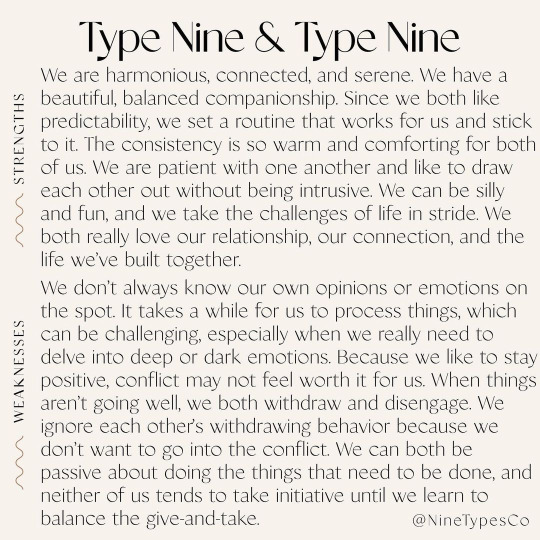
Enneagram Types in Relationships: Type Nine. From NineTypesCo by Steph Barron Hall.
In relationships, Nines value comfort and harmony. Nines extend acceptance to others, which creates a safe, loving space for the relationship to thrive. It’s important to Nines that others are also just, fair, and open to different perspectives. When less aware, Nines can merge so strongly with their partner that they no longer know who they truly are. Beneath the merging is a desire to be loved and cared for in a way that supports their peace and creates true, deep, connected love.
View the text version of this post!
9 notes
·
View notes
Text
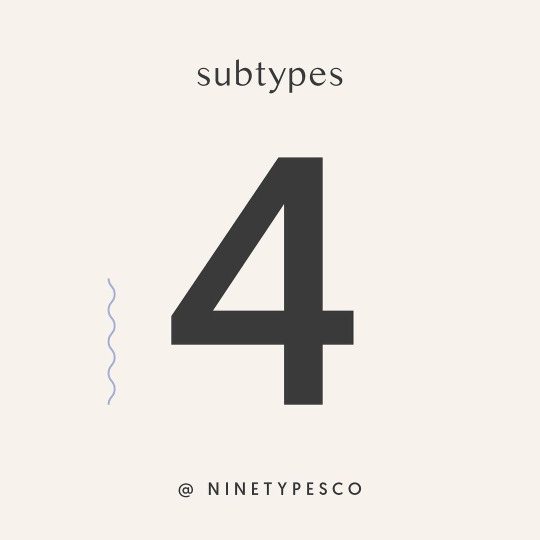
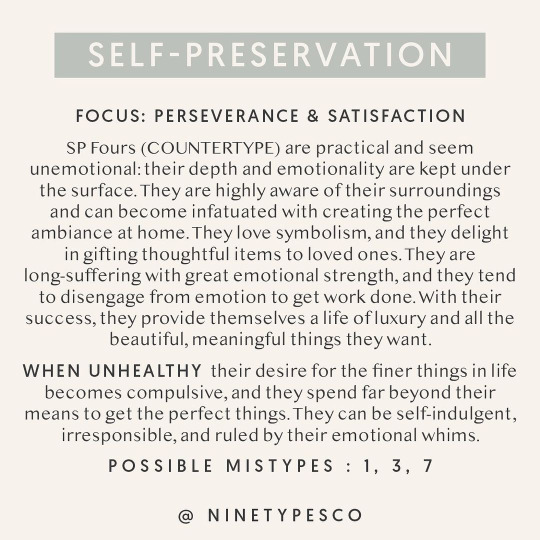
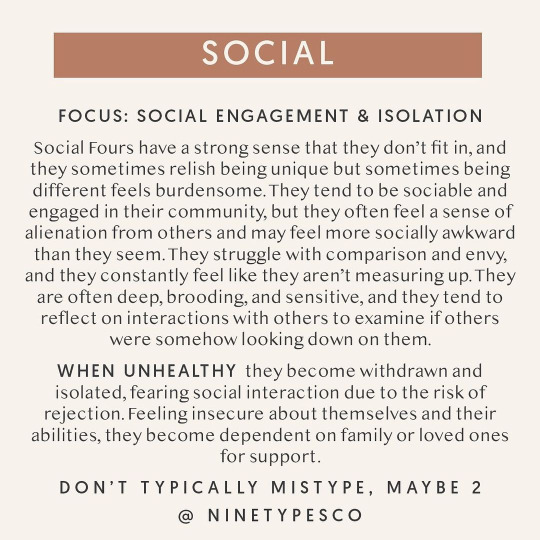
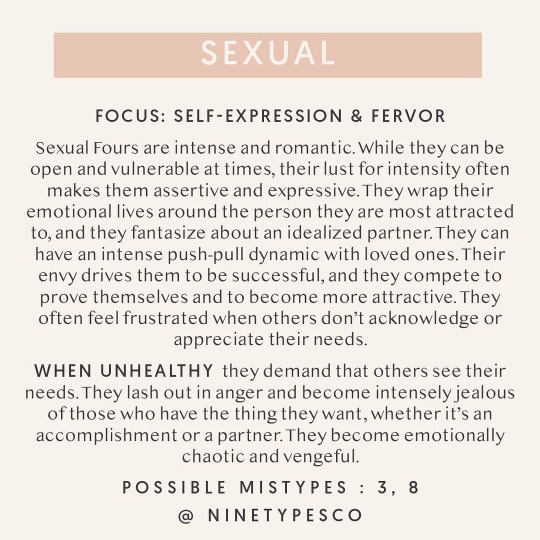
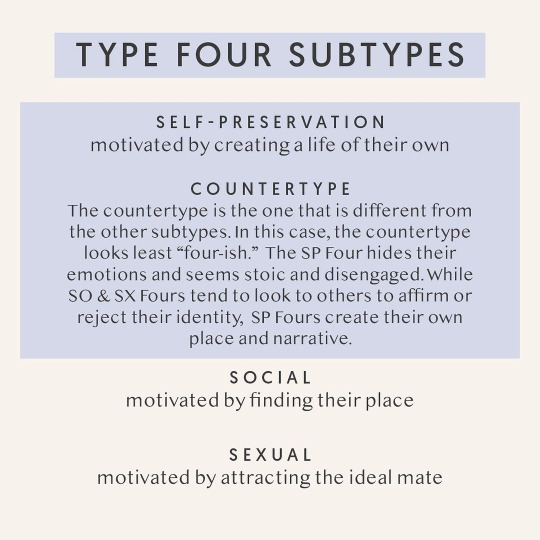
Subtypes: Type Four. From NineTypesCo by Steph Barron Hall.
7 notes
·
View notes
Text
A few things to know about Type One.
From NineTypesCo by Steph Barron Hall.
Common Underlying Motivation:
To be good
→ This motivation is not about being the best, and it’s often not even about perfection. Instead, 1s are aiming to find a deep sense that everything is good: all is well in the world and in themselves. The good they are seeking is about virtue, integrity, righteousness (but not self-righteousness), and fairness, and it contains warmth, balance, and the flourishing of all of humanity. For some 1s, pushing toward a standard of excellence and perfection feels like one way to get there, even though that’s not what they’re ultimately seeking.
Frequently Avoiding:
Being "bad" or being the last to know when they're wrong
→ 1s often have a fear that they are somehow irredeemably corrupt or deficient, so they work incredibly hard to avoid this. They are also so keenly aware of things being imperfect that their inner critic might pop up and remind them of allllll the imperfections. Then, when someone else points out an error, they’re not the last to know they were wrong.
You might not know that…
→ Not all 1s feel like perfectionists, in the traditional sense of the word. Many 1s are more concerned with fairness, accuracy, ethics, and clarity than they are with “perfectionism,” but it can easily be labeled as perfectionism from the outside. 1s frequently feel a lot of pressure to make things right, to make things better, and to reach a standard that may or may not be possible.
→ Most of the time, 1s genuinely want your feedback, and they’d like to hear what you think, especially if you’re in a relationship with them. They want to be the best partner/friend/sibling/etc., but it can be difficult to hear feedback when their inner critic takes it and runs with it. Being extra gentle, while still being clear, is always appreciated.
→ Many 1s spend a lot of energy ensuring they are appropriate. The anger or rage they feel beneath the surface about all the things that are wrong in the world feels inappropriate, so they work to repress it, and it often leaks out as resentment and frustration. But anger isn’t necessarily a bad thing! Anger gives energy, helps set boundaries, and offers willpower to make the world a better place. When 1s become more able to feel and release their anger, they can use it for good.
→ We all think of 1s as industrious, idealistic improvers, but there’s more to them! They can also be fun, excitable, silly, and spontaneous.
→ Sometimes the pressures of life weigh on them, and they feel responsible to fix everything. In this mode, it’s really difficult for 1s to loosen up and have fun, but that fun side exists!
→ 1s can be very black-and-white about a lot of things in life. Often, this is a tool they’ve needed to keep themselves in line. If there are strict boundaries around right and wrong, they can move through life without too much angst, as long as they stay inside those boundaries. This helps them stay free of mistakes and ensures they won’t be harshly punished (by themselves or others). Most of the time, 1s who want to grow are working to step out of this rigidity, but it’s a long process to learn that while these skills have been necessary in the past, they might not be helpful for the future.
And BTW…
→ 1s have deep emotions, and even if they’re not always able to articulate them, they exist under the surface. It sometimes takes time to be able to express what they do feel rather than what they should feel.
See the image version of this post!
9 notes
·
View notes
Text
Enneagram Types in Relationships: Type Four.
From NineTypesCo by Steph Barron Hall.
In relationships, Fours are often deep, novel, introspective, creative, & passionate. Fours value depth and empathy. Fours long to be mirrored and deeply understood by their partner, and they spend a great deal of time thinking about their own identity and who they are in the partnership. When less aware, Fours get so caught up in their own thoughts or daydreams that they are no longer attached to reality. In this state, they may ignore their partner. Overall, Fours are passionate and expressive of their moods and creativity, and they long to be seen for who they truly are.
Type Four & Type One
Strengths: We're both idealists, and we have a vision for how the world could be. The One brings boundaries to the Four's endless self-expression and depth, while the Four gets the One to loosen up a bit and think outside the box. We are opposites in many ways, but our energies complement each other well when we're in sync. We can cultivate a deep, meaningful relationship.
Weaknesses: Fours and Ones both internalize criticism and see any negative feedback as confirmation of their "fatal flaw," which can endanger the relationship. The One can be overwhelmed by the Four and can become resentful because they feel they are the only one who is correct and acting properly. The Four can feel constantly critiqued for being different and may lash out when the One feels they are just trying to help.
Type Four & Type Two
Strengths: We are connected, intimate, and empathetic. The Two sees the Four's needs and is able to pull them out of their heads just enough that the Four can be engaged and connected in the world. The Four seeks to understand the depth of the Two's heart, which helps the Two become more in tune with their own feelings. The Two offers a friendly, sociable energy to the relationship, while the Four brings creativity, humor, and honesty. Together, we can enjoy a deep, emotionally fulfilling relationship.
Weaknesses: We expect a lot from one another, but we aren't always good at communicating our expectations. The Two might expect the Four to meet all their needs and may get demanding when the Four is either unaware or passive. The Four longs to be deeply known but may be frustrated by the Two's helpfulness and desire to "fix" displays of emotion. Because the Four is so introspective, they may not realize the Two needs attention. Because the Two is so image-conscious, they may not realize that their charm is alienating the Four.
Type Four & Type Three
Strengths: We are intense, communicative, and earnest. The Three brings practicality, ambition, energy, and structure to the relationship, which helps the Four silence their self-doubts and be more present in the world. The Four offers depth, introspection, and meaning, all of which help the Three slow down and look inside. We both help each other pay attention to the things that truly matter to us. We have a very balanced dynamic of meaning, sensitivity, strong-communication, and poise.
Weaknesses: We have very different emotional temperaments, so we sometimes don't understand each other. The Three finds the Four's emotionality to be overwhelming or irrational, while the Four finds the Three's lack of emotionality to be fake or apathetic. The Three feels that the Four is standing in their own way: they see the Four's potential and can't understand why they don't take action. The Four finds the Three's busyness to be futile if it doesn't also include space for beauty, connection, and actually living their life.
Type Four & Type Four
Strengths: We are deep, idealistic, emotional, and empathetic. We both tend to feel misunderstood by others, but we feel deeply understood by one another. It helps to be with someone who shares the same longing for meaning, beauty, and understanding in the world. We see the way things could be perfect, and we mourn what is missing. We can talk for hours about our deepest thoughts and fears, our childhood, our dreams, and our disappointments, and we are able to articulate our feelings in an eloquent, meaningful way. We love the passion, self-expression, and thoughtfulness we each bring to the relationship.
Weaknesses: We are both reactive in conflict and can say things we don't mean. We are both sensitive to any falsehood in the other, and the constant demand for authenticity can be exhausting for both of us. When one of us feels misunderstood, it feels like a significant break in our trust. We are both highly sensitive to rejection, and we experience criticism as confirmation that we are fatally flawed.
Type Four & Type Five
Strengths: We are complex, imaginative, and curious. We can have long conversations about obscure topics we're interested in, and because we both have an investigative nature, we enjoy diving deep into new subjects. The Four's emotionality and ability to describe nuances of emotion can help the Five become more comfortable with self-expression. Fives can find a way to be both well-reasoned and emotionally present. The Five offers the Four rational, objective wisdom, and helps the Four think through their ideas. The Five's steadiness helps the expressive Four avoid getting swept away.
Weaknesses: We both live inside our heads, which means the practical details of life can slip through our fingers unnoticed. We have to make an effort to get grounded in reality to take care of ourselves and one another. The Four can find the Five's objectivity and detachment frustrating because they don't feel that the Five is present with them in their struggles. The Five can be overwhelmed by the Four's self-expression since Fives tend to carefully, methodically consider their words.
Type Four & Type Six
Strengths: We are expressive, sensitive, and affectionate. We both tend to react emotionally to one another and the world around us, which actually helps us deeply understand and care for one another. We can be really similar, and that's comforting. The Four brings compassion, self-awareness, and emotionality, while the Six brings loyalty, practicality, and perseverance. We can both find the depth we want in the relationship because the Four always wants to go deeper, and the Six is committed to sticking together.
Weaknesses: No one likes to hear that they lack common sense or practicality, and this is especially true for Fours, who have spent their lives hearing they are "too much." When the Six insists on being practical or calls attention to the Four's tendency to be driven by their passions, the Four can feel deeply wounded. The Six's desire for predictability and steadiness can be challenging to the relationship since Fours tend to reject being boxed in, limited, and told how to navigate their life. The Four's pursuit of authenticity doesn't always fall in line with the Six's need for consistency.
Type Four & Type Seven
Strengths: We are idealistic, expressive, colorful, and curious. We are opposite in many ways, but we both tend to think out- side the box, and we appreciate all the excitement the other brings to the relationship. The Seven helps the Four see all the wonderful, positive things in their life, and they bolster the Four's confidence. The Four helps the Seven stay grounded and creates a safe space for the Seven to experience emotions. We are constantly intrigued and fascinated by one another—our relationship is never dry or stagnant.
Weaknesses: We are very different in our reactions to conflict and emotion. The Four can feel left behind by the Seven's constant chasing of opportunity. They may feel that the Seven doesn't care if the Seven doesn't take time to respect the Four's feelings or ask them what they think. The Seven can feel stifled by the Four's need for emotional connection. They may feel that the Four is a killjoy who just wants to keep them down. We can both be over-the-top in our expression of our opposite needs.
Type Four & Type Eight
Strengths: We are authentic, passionate, and intense. We both bring keen intuition to the relationship, and we tend to under- stand and act on our gut reactions. We both appreciate that the other can match our intensity. The Four brings sensitivity and emotional vulnerability to the relationship, which the Eight knows they need. The Eight offers a sense of practicality, strength, and protection, which the Four craves. There is a magnetic pull between us, and we are on a quest to understand (or conquer) the mystery of one another.
Weaknesses: We are both reactive in conflict, so disagreements can easily get explosive. Neither of us likes to be controlled, and we each have a visceral reaction to feeling misunderstood, especially when the other person assumes how we're feeling. Because we are reactionary and like excitement, we can get into a cycle of fighting and making up—it keeps things interesting, but it's not always healthy. The Eight's power can be overwhelming for the Four, who tends to be more of an internal processor, while the Four's withdrawing nature can frustrate the Eight.
Type Four & Type Nine
Strengths: We are empathetic, sensitive, and kind. We both want depth in our relationship, but we also value our independence. The Four brings an acute emotional awareness that encourages the Nine to voice their own emotional experiences. The Nine is nonjudgmental & offers the Four a sense of acceptance that can help the Four move toward self-love rather than self-doubt. The Nine is more pragmatic and helps the Four keep their feet on the ground, while the Four is more energetic and helps the Nine to get out and experience the world.
Weaknesses: We are opposite in our stress responses, which can make working through conflict challenging. The Nine disengages with the conflict, preferring instead to stay positive in an attempt to keep the peace. In turn, the Four feels that the Nine isn't present or willing to work through things. The Four is emotionally reactive in conflict, believing that the conflict will be worked out if they express their real feelings. This can overwhelm the Nine, who is unsettled by the display of emotion. We both may let things go unsaid in our relationship.
View the image version of this post!
9 notes
·
View notes
Text
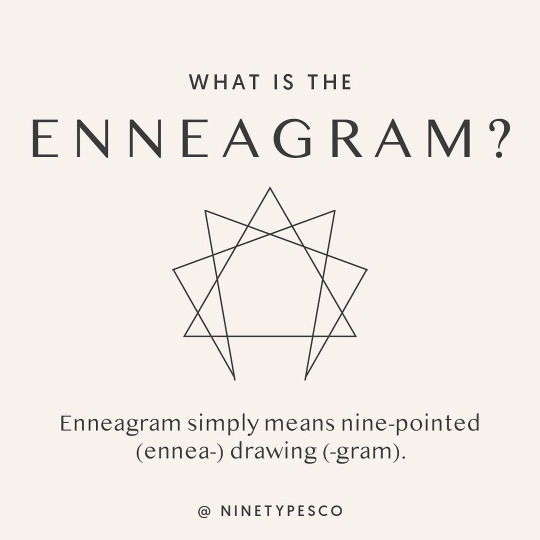
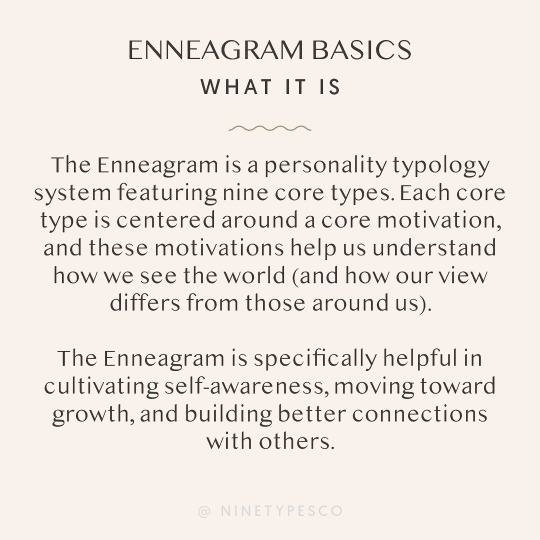

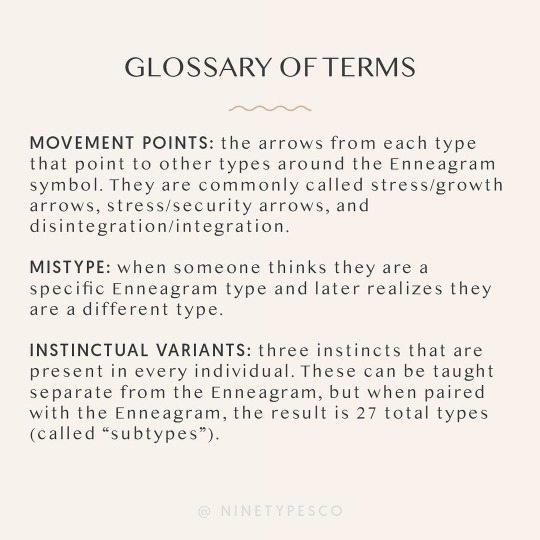

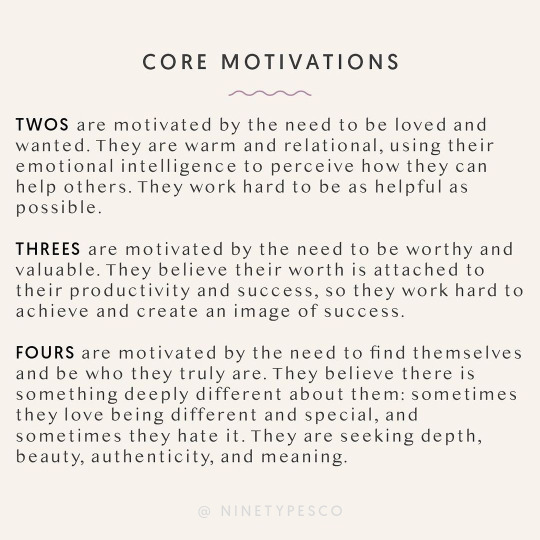


What is the Enneagram? From NineTypesCo by Steph Barron Hall.
5 notes
·
View notes
Text
A few things to know about Type Four.
From NineTypesCo by Steph Barron Hall.
Common Underlying Motivation:
To be truly, deeply understood for who they are (both by themselves and others)
→ Because of this, Fours tend to be very introspective - they often live inside their heads and are thinking and feeling through possibilities, daydreams, and what’s missing or lacking. They also desire to be fully authentic (and how can they know if they’re authentic if they don’t know what’s under the surface?)
Frequently Avoiding:
Being inauthentic or insignificant
→ Avoiding being inauthentic often means that Fours spend more time than most other types considering how they feel or what they think about things and why.
You might now know that…
→ Not all 4s express their emotions all the time! In fact, 4s can have fears around vulnerability, sharing their thoughts, and being misunderstood, just like anyone else.
→ 4s are often acutely aware that they see things differently than others do. While they sometimes love this about themselves, it can also be a cause of frustration and sadness since they deeply desire to feel understood. Sometimes, 4s intentionally make themselves stand out a bit so they won’t be understood, thinking, “if I make it so you can’t understand me, it won’t hurt as much when I’m misunderstood.” But a lot of 4s stand out because they’re expressing the truest, most authentic self they possibly can at all times (and to be honest, a lot of us are afraid to do that)
→ Many 4s are focused on quality, meaning, and purpose, and they’re willing to shift the direction they’re moving to align with that. Which means they might change their minds or do things differently than others expect because they’re always focusing on aligning with their authentic purpose.
→ One of the biggest misconceptions about 4s is that they are only feelers and not thinkers, and that they can only be creative and artistic and not organized, determined, and logical, but these things are not mutually exclusive! Fours can be alllllll of the above. Competence, confidence, sensitivity, empathy, passion, etc. can all coexist.
→ Sometimes people assume that being emotional is a weakness… but it’s not! 4s are incredibly resilient and can navigate those big, overwhelming emotions well. Being expressive and experiencing big emotions is not limited to sad or melancholy emotions. 4s feel all of the feelings! Gratitude, joy, happiness, and love are all available, too.
→ Many 4s experience having a really tough inner critic because they tend to have a deep sense of lack. Sometimes it’s subconscious, but they might feel that there is something flawed about them, or they’re missing something others have. They might have an internal dialogue that says, “there’s something wrong with me,” and being misunderstood reinforces that. Self-compassion can be powerful for 4s because it can help them see that they are not deficient in any way.
And BTW…
→ 4s can experience pressures to conform, shapeshift, and manage their image, just like the other heart types. This doesn’t mean they always conform, but they are often aware of expectations and whether or not others accept them.
See the image version of this post!
7 notes
·
View notes
Text


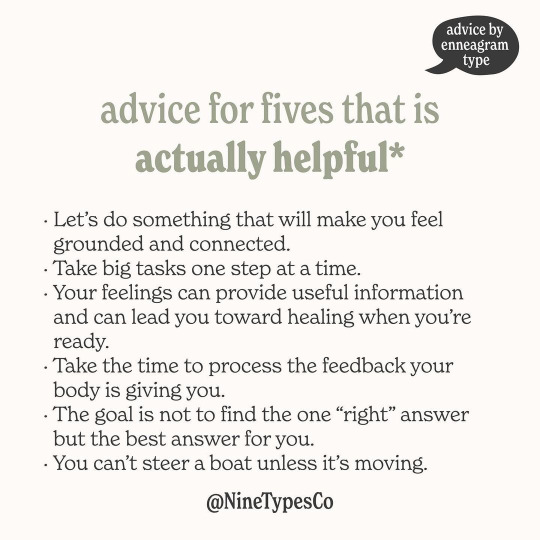
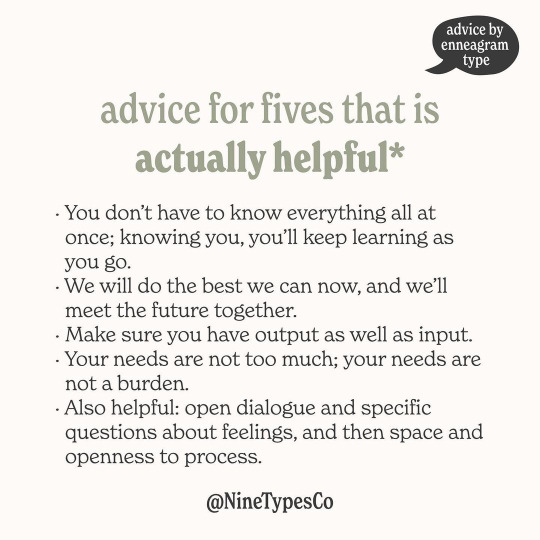
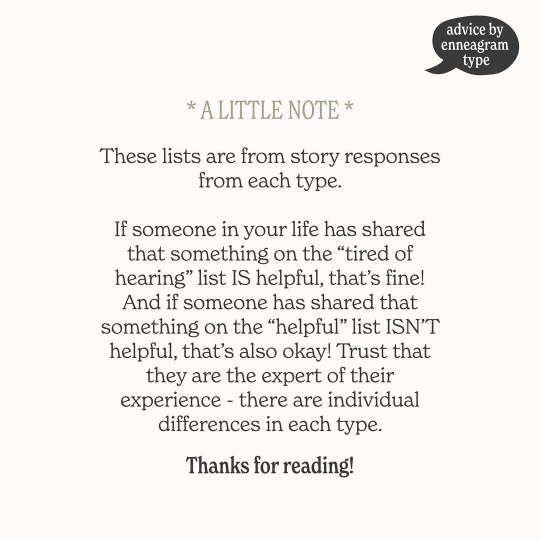
Advice by Enneagram Type: Type Five. From NineTypesCo by Steph Barron Hall.
See the text version of this post!
13 notes
·
View notes
Text
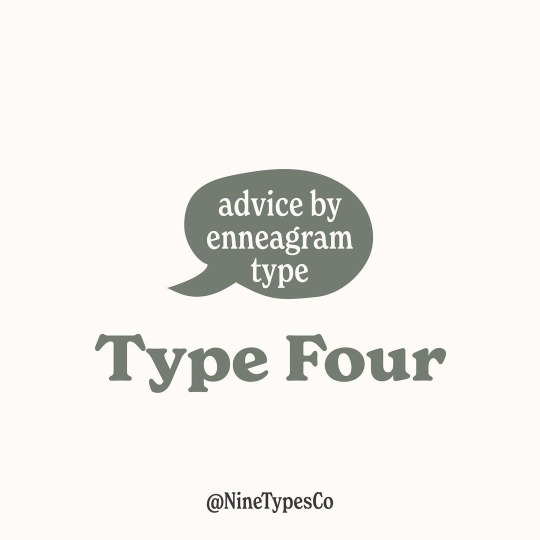
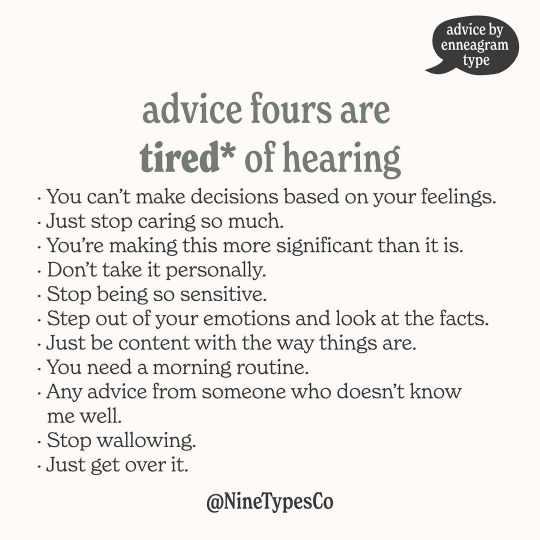
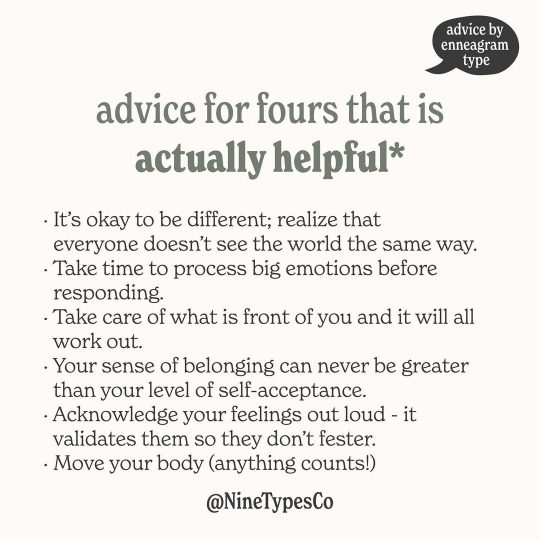

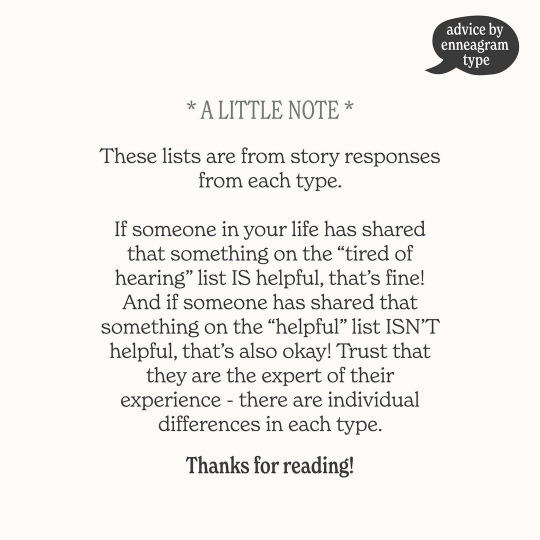
Advice by Enneagram Type: Type Four. From NineTypesCo by Steph Barron Hall.
See the text version of this post!
10 notes
·
View notes